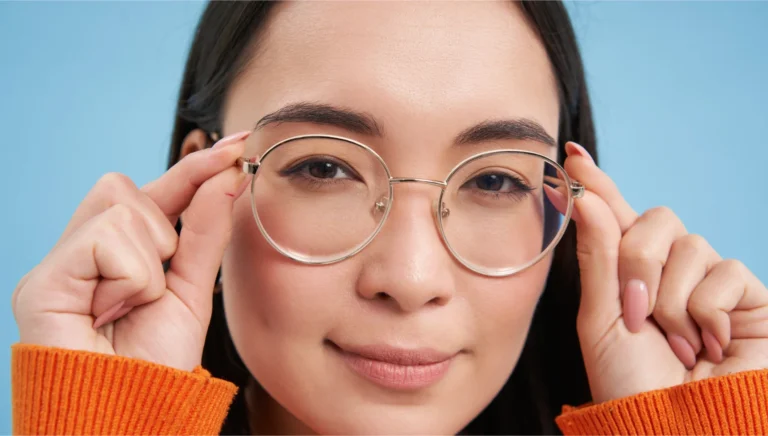Hyperopia is a vision problem in which nearby objects look blurred, while the distant objects are more clearly visible.
Hyperopia, also known as long-sightedness, is a common vision condition where distant objects appear clearer than close-up ones. This happens when the shape of the eye causes light to focus behind the retina instead of directly on it. At Norfolk Opticians, we regularly diagnose and treat hyperopia for patients of all ages in Scunthorpe (Ashby) and Brigg.
Symptoms of Hyperopia
Hyperopia can affect people differently depending on the degree of vision correction needed. Common symptoms include:
- Blurry vision when reading or doing close-up work
- Eye strain or fatigue, especially after prolonged near tasks
- Squinting to see objects clearly
- Headaches, particularly after reading or computer use
- Difficulty focusing on close objects
- In children, crossed eyes (strabismus) may sometimes occur as a result of untreated hyperopia
Some people with mild hyperopia may not notice symptoms right away, especially when they are young, as their eyes can naturally adjust focus.
Causes of Hyperopia
Hyperopia is usually the result of the eyeball being shorter than normal or the cornea having too little curvature. These changes affect how light is refracted (bent) inside the eye, causing near objects to appear blurry.
Hyperopia can be:
- Present from birth (common in children)
- Inherited through family genetics
- Develop gradually with age-related changes in the eye
How Hyperopia is Diagnosed
At Norfolk Opticians, we use comprehensive eye tests and sight examinations to check your prescription and overall eye health.
A hyperopia assessment typically includes:
- Vision testing using an eye chart
- Refraction test to determine your lens prescription
- Eye health evaluation to rule out other conditions such as cataracts or glaucoma
Treatment Options for Hyperopia
1. Prescription Glasses
The most common and simple treatment. Specially made lenses help refocus light onto the retina, giving you clear near vision.
2. Contact Lenses
An excellent alternative to glasses for many patients. Options include daily disposables, monthly lenses, or multifocal contact lenses for those needing correction for both near and distance vision.
3. Vision Therapy (in certain cases)
For children with specific focusing or eye alignment issues, vision therapy may be recommended alongside corrective lenses.
4. Regular Eye Exams
Even if you don’t notice symptoms, hyperopia can worsen over time. Routine check-ups help keep your prescription up to date and ensure your eyes remain healthy.
Hyperopia in Children
Children with hyperopia may struggle in school due to difficulty reading or concentrating on close-up tasks. Regular eye tests are essential to detect and correct the problem early, preventing vision strain and potential developmental issues.
Book Your Eye Test Today
If you’re experiencing symptoms of hyperopia, or it’s been over two years since your last eye test, visit us at Norfolk Opticians in Scunthorpe (Ashby) or Brigg. Our friendly, experienced team will ensure you get the right prescription and treatment for clear, comfortable vision.
📞 Scunthorpe (Ashby): 01724 867117
📞 Brigg: 01652 653710
📧 hello@norfolkopticians.co.uk


